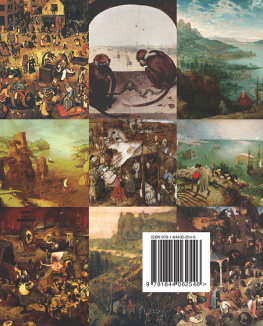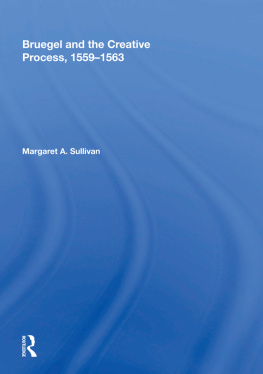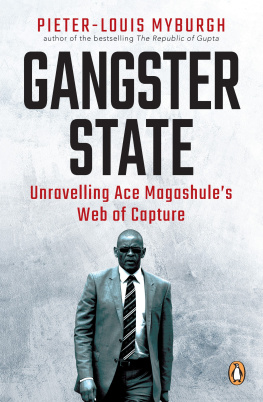Pieter Verdegem - AI for Everyone?
Here you can read online Pieter Verdegem - AI for Everyone? full text of the book (entire story) in english for free. Download pdf and epub, get meaning, cover and reviews about this ebook. City: London, year: 2021, publisher: University of Westminster Press, genre: Politics. Description of the work, (preface) as well as reviews are available. Best literature library LitArk.com created for fans of good reading and offers a wide selection of genres:
Romance novel
Science fiction
Adventure
Detective
Science
History
Home and family
Prose
Art
Politics
Computer
Non-fiction
Religion
Business
Children
Humor
Choose a favorite category and find really read worthwhile books. Enjoy immersion in the world of imagination, feel the emotions of the characters or learn something new for yourself, make an fascinating discovery.
- Book:AI for Everyone?
- Author:
- Publisher:University of Westminster Press
- Genre:
- Year:2021
- City:London
- Rating:4 / 5
- Favourites:Add to favourites
- Your mark:
- 80
- 1
- 2
- 3
- 4
- 5
AI for Everyone?: summary, description and annotation
We offer to read an annotation, description, summary or preface (depends on what the author of the book "AI for Everyone?" wrote himself). If you haven't found the necessary information about the book — write in the comments, we will try to find it.
AI for Everyone? — read online for free the complete book (whole text) full work
Below is the text of the book, divided by pages. System saving the place of the last page read, allows you to conveniently read the book "AI for Everyone?" online for free, without having to search again every time where you left off. Put a bookmark, and you can go to the page where you finished reading at any time.
Font size:
Interval:
Bookmark:
Critical Perspectives
Edited by
Pieter Verdegem
Critical, Digital and Social Media Studies
Series Editor: Christian Fuchs
The peer-reviewed book series edited by Christian Fuchs publishes books that critically study the role of the internet and digital and social media in society. Titles analyse how power structures, digital capitalism, ideology and social struggles shape and are shaped by digital and social media. They use and develop critical theory discussing the political relevance and implications of studied topics. The series is a theoretical forum for internet and social media research for books using methods and theories that challenge digital positivism; it also seeks to explore digital media ethics grounded in critical social theories and philosophy.
Editorial Board
Thomas Allmer, Mark Andrejevic, Miriyam Aouragh, Charles Brown, Melanie Dulong De Rosnay, Eran Fisher, Peter Goodwin, Jonathan Hardy, Kylie Jarrett, Anastasia Kavada, Arwid Lund, Maria Michalis, Stefania Milan, Vincent Mosco, Safiya Noble, Jack Qiu, Jernej Amon Prodnik, Sarah Roberts, Marisol Sandoval, Sebastian Sevignani, Pieter Verdegem, Bingqing Xia, Mariano Zukerfeld
Published
Critical Theory of Communication: New Readings of Lukcs, Adorno, Marcuse, Honneth and Habermas in the Age of the Internet
Christian Fuchs
https://doi.org/10.16997/book1
Knowledge in the Age of Digital Capitalism: An Introduction to Cognitive Materialism
Mariano Zukerfeld
https://doi.org/10.16997/book3
Politicizing Digital Space: Theory, the Internet, and Renewing Democracy
Trevor Garrison Smith
https://doi.org/10.16997/book5
Capital, State, Empire: The New American Way of Digital Warfare
Scott Timcke
https://doi.org/10.16997/book6
The Spectacle 2.0: Reading Debord in the Context of Digital Capitalism
Edited by Marco Briziarelli and Emiliana Armano
https://doi.org/10.16997/book11
The Big Data Agenda: Data Ethics and Critical Data Studies
Annika Richterich
https://doi.org/10.16997/book14
Social Capital Online: Alienation and Accumulation
Kane X. Faucher
https://doi.org/10.16997/book16
The Propaganda Model Today: Filtering Perception and Awareness
Edited by Joan Pedro-Caraana, Daniel Broudy and Jeffery Klaehn
https://doi.org/10.16997/book27
Critical Theory and Authoritarian Populism
Edited by Jeremiah Morelock
https://doi.org/10.16997/book30
Peer to Peer: The Commons Manifesto
Michel Bauwens, Vasilis Kostakis and Alex Pazaitis
https://doi.org/10.16997/book33
Bubbles and Machines: Gender, Information and Financial Crises
Micky Lee
https://doi.org/10.16997/book34
Cultural Crowdfunding: Platform Capitalism, Labour and Globalization
Edited by Vincent Rouz
https://doi.org/10.16997/book38
The Condition of Digitality: A Post-Modern Marxism for the Practice of Digital Life
Robert Hassan
https://doi.org/10.16997/book44
Incorporating the Digital Commons: Corporate Involvement in Free and Open Source Software
Benjamin J. Birkinbine
https://doi.org/10.16997/book39
The Internet Myth: From the Internet Imaginary to Network Ideologies
Paolo Bory
https://doi.org/10.16997/book48
Communication and Capitalism: A Critical Theory
Christian Fuchs
https://doi.org/10.16997/book45
Marx and Digital Machines: Alienation, Technology, Capitalism
Mike Healy
https://doi.org/10.16997/book47
The Commons: Economic Alternatives in the Digital Age
Vangelis Papadimitropoulos
https://doi.org/10.16997/book46
Intellectual Commons and the Law: A Normative Theory for Commons-Based Peer Production
Antonios Broumas
https://doi.org/10.16997/book49
The Fight Against Platform Capitalism: An Inquiry into the Global Struggles of the Gig Economy
Jamie Woodcock
https://doi.org/10.16997/book51
Critical Perspectives
Edited by
Pieter Verdegem

University of Westminster Press
www.uwestminsterpress.co.uk
Published By
University of Westminster Press
115 New Cavendish Street
London W1W 6UW
www.uwestminsterpress.co.uk
Introduction and Editorial Arrangement Pieter Verdegem 2021
Text of Chapters Several Contributors 2021
First published 2021
Cover design: www.ketchup-productions.co.uk
Series cover concept: Mina Bach (minabach.co.uk)
Print and digital versions typeset by Siliconchips Services Ltd.
ISBN (Paperback): 978-1-914386-16-9
ISBN (PDF): 978-1-914386-13-8
ISBN (EPUB): 978-1-914386-14-5
ISBN (Kindle): 978-914386-15-2
DOI: https://doi.org/10.16997/book55
This work is licensed under the Creative Commons Attribution-NonCommercial-NoDerivatives 4.0 International License. To view a copy of this license, visit http://creativecommons.org/licenses/by-nc -nd/4.0/ or send a letter to Creative Commons, 444 Castro Street, Suite 900, Mountain View, California, 94041, USA. This license allows for copying and distributing the work, providing author attribution is clearly stated, that you are not using the material for commercial purposes, and that modified versions are not distributed.
The full text of this book has been peer-reviewed to ensure high academic standards. For full review policies, see:
http://www.uwestminsterpress.co.uk/site/publish.
Competing interests: The editors and contributors
have no competing interests to declare.
Suggested Citation: Verdegem, P. (ed.) 2021. AI for Everyone? Critical Perspectives .
London: University of Westminster Press.
DOI: https://doi.org/10.16997/book55. License: CC-BY-NC-ND 4.0
To read the free, open access version of this book online, visit https://doi.org/10.16997/book55 or scan this QR code with your mobile device

Pieter Verdegem
Andreas Kaplan
Wolfgang Hofkirchner
Jenna Ng
Dan McQuillan
Rainer Rehak
Angela Daly, S. Kate Devitt and Monique Mann
James Steinhoff
Benedetta Brevini
Alkim Almila Akdag Salah
Carrie OConnell and Chad Van de Wiele
Jernej A. Prodnik
Asvatha Babu and Saif Shahin
Rafael Grohmann and Willian Fernandes Arajo
Lina Dencik
CHAPTER 1
Pieter Verdegem
The renewed interest in Artificial Intelligence (AI) has made it the most recent hype in the world of technological innovation. In the business world, AI is seen as a catalyst for growth, which will manifestly transform the economy and the future of work (Agrawal, Gans and Goldfarb 2018; Lee 2018; McAfee and Brynjolfsson 2017). Policymakers and civil society are putting their hopes on AI for tackling global challenges such as pandemics and even climate change (Dobbe and Whittaker 2019; Dananjayan and Raj 2020). AI also seems to be the subject of an arms race between China, Russia and the USA for equipping their armies with automated weaponry (Asaro 2018).
Whenever we are confronted with a hype, it is of utmost importance to untangle what exactly is at stake and who is behind the discourses and myths created. We are being told stories about AI as the ultimate innovation, transforming the ways we live and work often started in corporate circles and distributed by their supportive popular outlets. At the same time, however, analysis is revealing that AI itself is one reason behind intensifying societal problems and harms. Researchers and thinkers have observed and/or predicted that AI leads to discrimination (Zuiderveen Borgesius 2018), is the engine behind growing inequalities (Korinek and Stiglitz 2017), can bring about technological unemployment (Ford 2015) and may even contribute to the end of humanity (Bostrom 2014).
Font size:
Interval:
Bookmark:
Similar books «AI for Everyone?»
Look at similar books to AI for Everyone?. We have selected literature similar in name and meaning in the hope of providing readers with more options to find new, interesting, not yet read works.
Discussion, reviews of the book AI for Everyone? and just readers' own opinions. Leave your comments, write what you think about the work, its meaning or the main characters. Specify what exactly you liked and what you didn't like, and why you think so.












